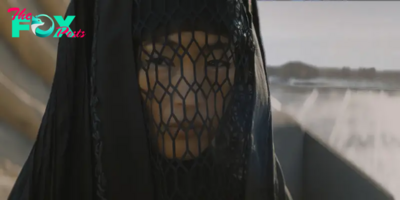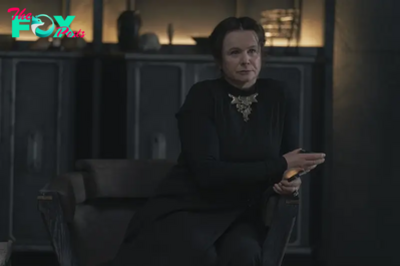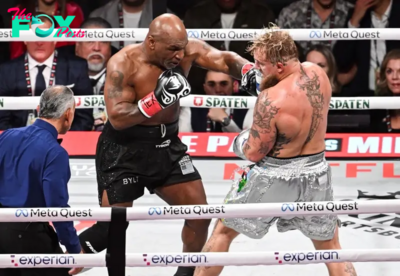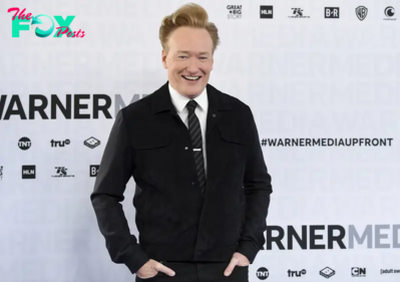Entertainment
Juror #2 Reflects the Major Themes of Clint Eastwood’s Career—Down to Its Unpredictable Ending
Warning: This story includes spoilers for Juror #2.
“This is a story about people.”
This was the first thing Clint Eastwood said to first-time screenwriter Jonathan A. Abrams upon reading Abrams’ script for Juror #2, a sure-handed, handsomely made, and understated courtroom procedural. The thriller deals with such weighty ideas as truth, justice, morality, and guilt—mainstay themes that have long been part of the DNA of Eastwood’s wide-ranging filmography, from Dirty Harry to Sully. “He said it with his trademark to-the-point-ness,” Abrams remembers during a recent conversation with TIME over Zoom.
His script made it to Eastwood’s Malpaso Productions after producer Matt Skiena asked Abrams, “Who do you want to direct this movie? Aim high.” With this prompt, the screenwriter considered which working director would appreciate what’s essentially “a modern gloss on 12 Angry Men.” Eastwood, with more than five decades under his belt directing films dedicated to complex inquiries into virtue, ethics, and fairness, was the first name that popped into his head. “Meeting Clint for the first time was probably the greatest day of my life, next to the birth of my kids and my wedding day. He and I spoke just as two guys hanging out. It was unbelievable,” Abrams recalls. “Even if he said, ‘Hey, let's set it on Mars,’ I would've been like, ‘Sure!,’” he says with a laugh. “But his read really did confirm that he was the perfect director for the script.”
At first glance, Eastwood’s pithy first impression of Abrams’ tale might sound like a generic take on the intricate and arresting story at the heart of Juror #2, one of the four-time Oscar winner’s finest later works, currently out nationwide through a puzzlingly undernourished distribution plan by Warner Bros., across only 50 theaters. (That said, this is also the type of film that should find a Healthy second life via streaming.) In fact, it’s an exact suMMAtion of where the legendary 94-year-old filMMAker’s head has always been as an observant and reflective director, producer, actor, and even composer, preoccupied with all the dualities that make us human. And if it ends up being the director’s last film, with rumors circulating about his retirement, it would certainly be a fitting closing note.
Read more: The 100 Best Movies of the Past 10 Decades
Juror #2 is about people who exist in the gray area
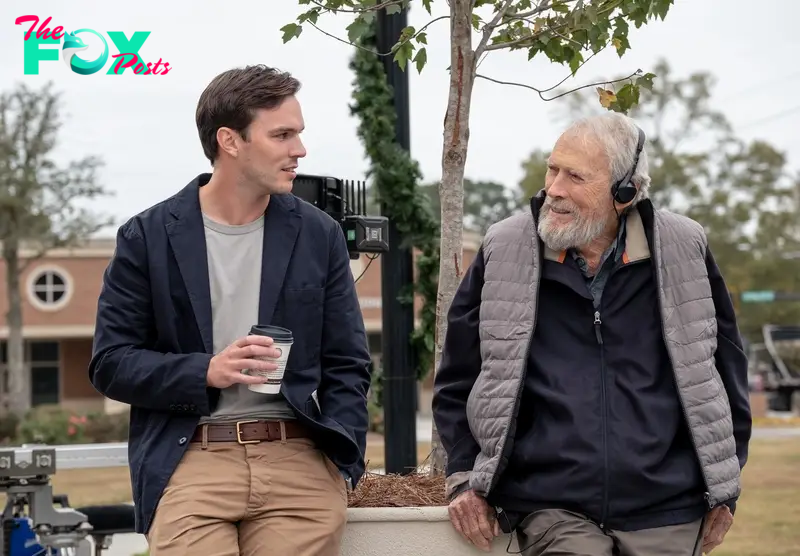
The kind of compulsively watchable (and rewatchable) prestige popcorn fare major studios barely make anymore—a tightly wound, character-driven drama that would have been considered mainstream back in the ‘90s—Juror #2 unfolds around a fictional murder trial in Georgia. Throughout, we mostly follow the coNFLicted jury, struggling to reach a verdict on the case’s main suspect—victim Kendall Carter’s (Francesca Eastwood) bad-tempered boyfriend, James Michael Sythe (Gabriel Basso)—with some persuasive yet incomplete evidence against him. The real killer, though, is Nicholas Hoult’s Justin Kemp, a writer with a History of alcoholism who just so happens to be a member of the jury. Throughout the film, Kemp recalls, via sophisticated flashbacks, the stormy night when he thought he hit a deer, and left the scene unwittingly.
Putting up a fierce fight to prove Sythe’s guilt is Faith Killebrew (Toni Collette), a skillful, headstrong prosecutor. Meanwhile the equally determined defense attorney Eric Resnick (Chris Messina) believes in Sythe’s innocence, fiercely defending him before the diverse jury (played by an impressive supporting cast including Leslie Bibb, Chikako Fukuyama, J.K. Simmons, Cedric Yarborough, and Adrienne C. Moore), who all bring their own priorities and biases to the civil proceedings. Elsewhere, we meet Kemp’s pregnant wife Allison (Zoey Deutch), who needs Justin by her side after several heartbreaking miscarriages.
In other words, Juror #2 is indeed “a story about people”—circumstantially burdened, deeply flawed, plagued by a fraught conScience. The characters exist, perhaps like most humans at one time or another, in the moral “gray area,” as Abrams puts it. In Juror #2, as in many of Eastwood’s sharpest movies, everyone who has the humility to self-reflect and ask themselves, “What would I do in this situation?” is, by extension, on trial.
That same interest in humanity, alongside a deeply skeptical eye toward established systems (often governmental and judicial), has occupied much of Eastwood’s work. And it has extended to his own complicated political history, as a self-professed socially liberal, fiscally conservative libertarian—neither a traditional Republican by today’s standards (despite having supported several Republican candidates in the past), nor a Democrat. We see these themes play out in some of the filmmaker’s greatest movies—films where aging outlaws can have integrity (Unforgiven), thieves can hold a steadier moral compass than the sitting president (Absolute Power), devout family women can find the kind of pure love the audience wants to root for outside of marriage (The Bridges of Madison County), and grumpy old male coaches with a bias against women can discover their lives’ greatest purpose through a female athlete (Million Dollar Baby).
Fine-tuning the script alongside Eastwood
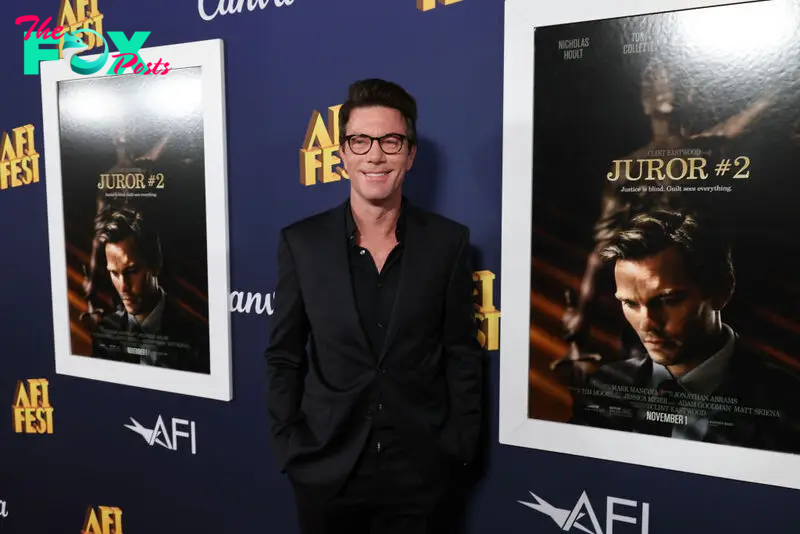
Abrams arrived at Juror #2’s elaborate story after accidentally becoming a de facto consultant for the District Attorney’s office. It all began years ago, when a friend of his, a former prosecutor who is now the youngest judge in the California Superior Court, approached him with an unconventional proposal. “He was having difficulty with a closing argument,” Abrams recalls. “He needed some Hollywood magic in his closing—that Matthew McConaughey, A Time To Kill-level speech.” With the help of Abrams—whose previous credits include working as an associate producer on the 2013 thriller Escape Plan and writing the book for The Heart of Rock and Roll, the Broadway musical about Huey Lewis that opened this year— he won the case, and Abrams continued offering his consultancy after that. He went to the courthouse often to watch trials, taking note of their theatrical features. That theatricality was most present when he witnessed a jury selection one day, with everyone trying get out of the duty. “I wondered what someone could say right now to convince this judge. ‘Your Honor, I can't serve because I committed the crime.’”
He knew this kind of morality play it was a great idea for a script. “I wanted it to be the story of the difficult decisions we're forced to make in life. We want to be good, but what does it mean to be good when it costs you potentially everything? I felt like as a director, Clint Eastwood would lean into the nuance of what I was trying to convey on the page, as opposed to turning it into a spectacle.” His instincts were spot on, as over the course of the next several months to a year, his collaboration with Eastwood indeed strengthened his script in stylish ways, deepening the characters’ dichotomies considerably.
For starters, the director suggested that Abrams get rid of the showy flash-forward scene that the script originally started with, begrudgingly written by Abrams upon the insistence of some who tried to convince him that the kick-off needed a catchy hook. “Clint’s like, ‘We can just start with the guy living his life.’ And I was like, ‘Oh, thank you for saying that.’ That was the course that he charted us on: strip away all the stuff that doesn't feel grounded and real, and double down on all the things that do. He made the script so much better.”
The duo also spent some time on the film’s flashbacks, which reveal both the details of Carter’s death and Kemp’s involvement in measured doses. The first-act flashbacks when Kemp realizes his guilt was always a part of the script, creating a Rashomon-like effect when juxtaposed against the court proceedings. But Eastwood pushed to have even more flashbacks later, especially when the jury visits the crime scene. “In a smart way, that added a finality to any lingering questions about Sythe’s [guilt or innocence] that the audience may have. It was just enough, but not too much. And that was Clint's suggestion.”
Read more: The 33 Most Anticipated Movies of Fall 2024
The influence of Mystic River and its impeccable ending
“It was really my North star as it pertained to Clint,” Abrams says of Eastwood’s Oscar-winning 2003 masterpiece, which he hoped to honor with Juror #2. One can indeed see clear footprints of the principles at play in the earlier movie, a crime thriller rooted in trauma, family, and the enduring guilty conscience. “It’s about a murder, but also, not really,” he explains. “And [like Juror #2], it doesn't end in a gunfight, but an investigation. When you look at the final scene of Mystic River, it's Kevin Bacon looking at Sean Penn during that parade, giving him the finger gun. I guess that implies, ‘I'm coming for you,’ but we don't know how that's going to end.”
While the resolution of Juror #2 has more certainty, it also comes with a similar sense of open-endedness—Kemp gets away with his unintentional crime at first, but the restless prosecutor Killebrew still comes for him with a knock on his door in the final scene. While it’s obvious why she’s there, we don’t get to see what happens next in any kind of over-written way. “It doesn't really spoil anything, but I don't think she's there to ask for his banana bread recipe,” Abrams jokes. “We talked a lot about how much closure we wanted there to be. The draft that Clint initially read was even more open-ended. It was Justin getting away with it, and he's got to live with that. And Clint was like, ‘No, you’ve got to go further.’ There was always going to be a knock on the door. It was a question of whether we wanted to know who was on the other side of the door. And Clint said, ‘Yes, we want to see Toni on the other side.’”
“It’s his signature touch of leaving something for you,” Abrams says of Eastwood’s inclination. “And then it smashes to black and you see, ‘Directed by Clint Eastwood.’ It’s a perfect one-two punch. Maybe not for everyone, but I'm really proud of it.”
Civility and respectful disagreement
Among the most evident overarching qualities of Juror #2 is the mutual respect that’s embraced by the film’s characters on opposite ends—between the prosecution and defense, as well as among the jury members. To Abrams, that quality has a much deeper meaning than might initially meet the eye. “[Upon the false verdict], Eric says to his friend and adversary Faith, ‘I hope the sacrifice was worth it.’ And not, ‘I hate you,’” says Abrams. “The scenes in the jury room are some of my favorites in the film. Some say things that other people find reprehensible, but it never gets personal or mean. People listen to each other. It's discourse with civility. That's why those scenes resonate for me, both as a viewer and an artist. That's an important lesson in our current climate.”
And once again, he credits Eastwood for enhancing those scenes with his signature grip of the gray area. “I really loved that Clint [brought] that. ‘I don't like what you did, I don't respect what you did, but I'm still going to be your friend. We still have more battles to fight. And the system, flawed as it may be, is the best one that we’ve got.’”
If this is the note Eastwood retires on, it couldn’t possibly be any more reflective of the American master’s storied career.
-

 Entertainment3h ago
Entertainment3h agoFace Me and Other Korean Medical Crime Shows That are Must Watch
-
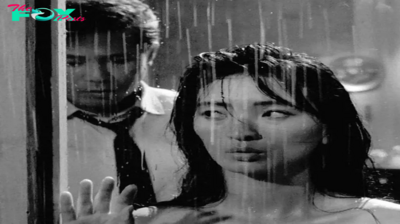
 Entertainment9h ago
Entertainment9h agoClassic Korean Movies Like Piagol to Add to Your Watch List
-

 Entertainment9h ago
Entertainment9h agoOver 60 Million People Tuned in to Watch Jake Paul vs. Mike Tyson
-

 Entertainment16h ago
Entertainment16h agoPopular Hudson Valley Italian Restaurant Addresses Closing Rumors
-

 Entertainment17h ago
Entertainment17h agoRHOBH’s Dorit Kemsley Addresses Viral Smoking Scene on Season 14 Premiere: ‘I Was Being Chased’
-

 Entertainment22h ago
Entertainment22h ago‘RHOBH’ Star Dorit Kemsley Opens Up About Crumbling Marriage to PK: ‘Agreed to Separate’
-

 Entertainment1d ago
Entertainment1d agoAmerica On CoffeeWe’re simply inviting you to take a timeout into the rhythmic ambiance of our breakfast, brunch and/or espresso choices. We’re completely satisfied everytime you cease by.“BLONDIE – RAPTURE”
-

 Entertainment1d ago
Entertainment1d agoAn Important Information to Navigating the Casting Course of


